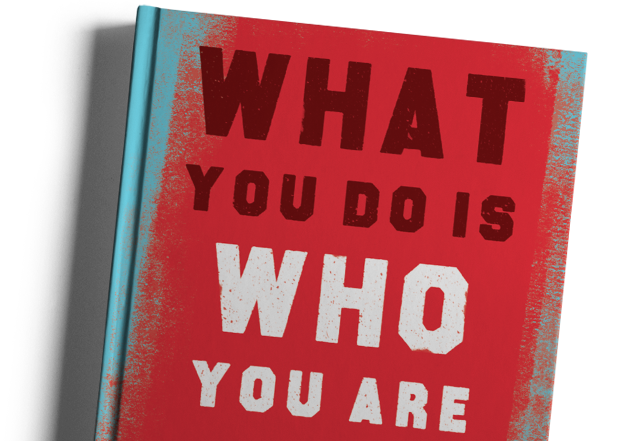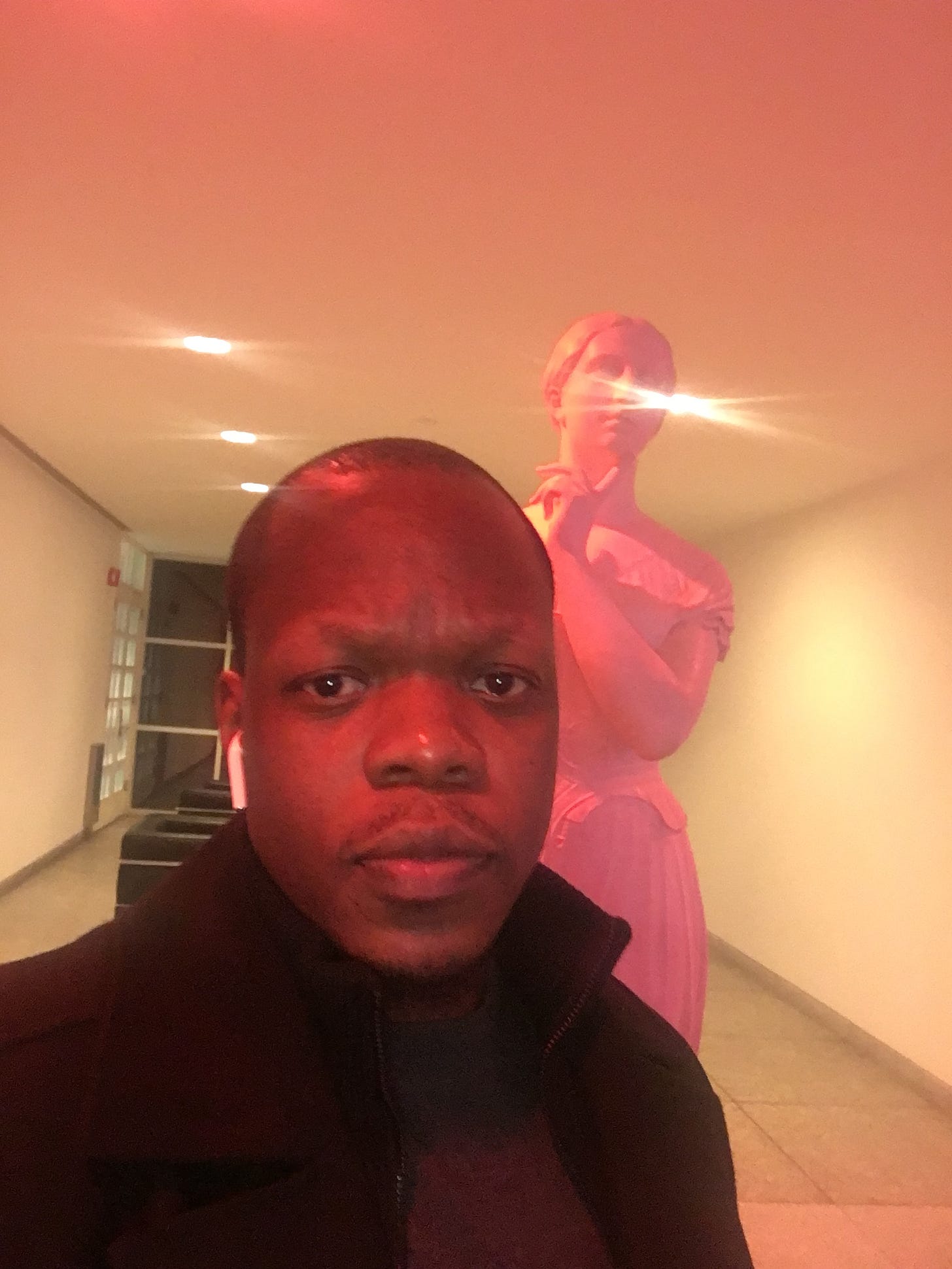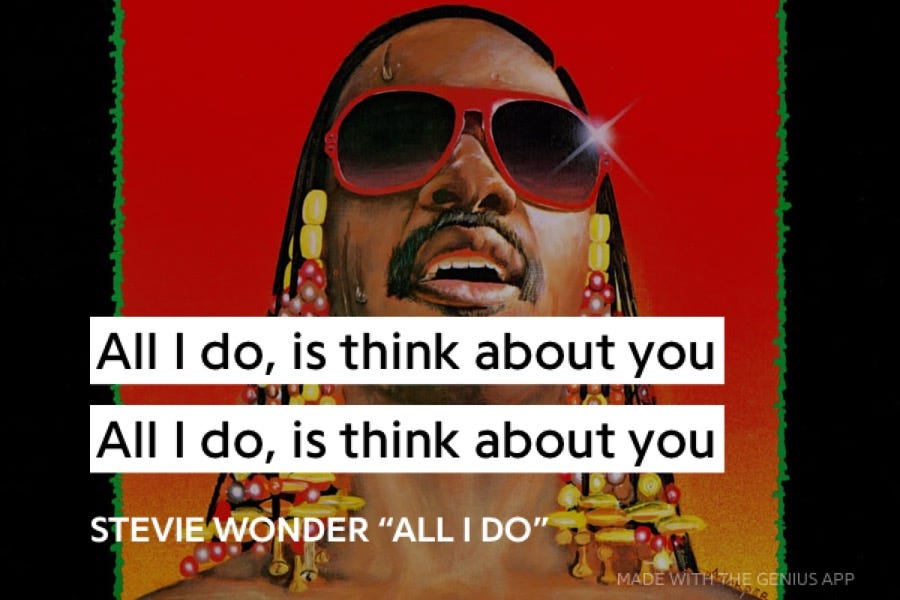I’m currently on vacation, and it’s given me time to think about life and work. Some people say you shouldn’t think about work while you’re on vacation; but I think that’s the perfect time to think about work.
I also think about the concept of work in a different way.
Work, to me, is simply an outgrowth of who I am as a person. I’ve always tried to connect my profession (i.e., what I get paid for) to my sense of purpose. Even when I was working an unpaid internship as a master’s degree student; or as a paralegal at a pharmaceutical company after graduating from law school, I always tried to connect the dots to my mission. For one, it’s how I stayed sane. Secondly, it kept me productive when I remained connected to my sense of purpose.
You don’t have to tell an orange tree to produce oranges, that’s what it does. You just need to put it in the right environment and get out of the way. You also can’t tell an orange tree not to “think” about oranges, it’s automatic. Now, there are different seasons with differing levels of productivity - and, to use that analogy, that’s why times of rest are important; but I also believe times of rest are opportunities to re-examine and re-calibrate.
We’re often caught up in the day to day of life, work and varying responsibilities; and we often don’t have (or find) time to step back and look at the bigger picture. Being able to not be on demand; but to instead evaluate our performance, our routines, and set new strategy, and expectations is one of the most effective ways towards progress. It’s like a coach or player watching game film and making adjustments.
“I insist on a lot of time being spent, almost every day, to just sit and think. That is very uncommon in American business. I read and think. So I do more reading and thinking, and make less impulse decisions than most people in business.”
- Warren Buffett
To be fair, it also depends on whether you love what you do. I’ve been obsessive about the media and entertainment space for exactly 10 years so it’s natural for me; but this brings me to the point of this article.
HOW DO YOU DO
In 2020, I went to an event hosted by venture capitalist, Paul Judge, for the launch of Ben Horowitz’ book ‘What You Do Is Who You Are’ (that’s a selfie from the event). It was held at the High Museum of Art in Atlanta; and was a nice event.
Funny story: at the event, I met an investor with I don’t remember how many millions of dollars under management. At a certain point in our conversation, I began trying to convince him there was an investment opportunity in partnering with recording artists to create ancillary brands. My thinking was that many of these artists have such a profound influence over young people; and that by attaching them to brands, not just as endorsers, but as stakeholders, one could see large profits.
He was skeptical.
And I was a young lawyer, just a few years out of law school, who couldn’t adequately articulate my thesis with enough data and statistics to make it make sense for a high level investor - primarily focused on the numbers.
Several years later, we’ve seen numerous private equity partnerships with influencers, and the “creator economy” has become a commonplace buzzword to describe this opportunity.
I won’t miss next time.
Back to the point. The premise of Ben Horowitz’ book is that identity and culture are not mere buzzwords, but show up in what we do on a daily basis. An example he uses is “company culture”, he talks about how many companies create mission, vision, and culture statements which sometimes contradict their everyday practices. His point is that the way employees communicate with one another, the approach the company takes towards its customers, and the quality of work exhibited throughout the organization; etc. clearly displays the company’s culture and its values.
What you do is who you are.
This memory showed up, during my vacation, through one thought: “the way you do anything is the way you do everything”. This is more self-reflective than anything, but I’m sharing it for external consideration as well.
The point being that I often find that my approach to certain tasks spills over to other tasks. Sure, there are certain things I have to do (like paying taxes) that I may not be interested, and may drag my feet on, while other tasks that I enjoy get my full attention; but that’s an indicator which leads to questions I think we can all benefit from.
Where does my energy naturally flow?
What excites me?
What can I get lost in doing for hours?
These are the activities we should be focusing on, while delegating (or getting rid of) tasks that may be best suited for others - in order to free us up to make greater impact through activities that naturally lay in our areas of strength.
Again, life isn’t all peaches and cream, so we inevitably will have to perform tasks and take on responsibilities that we don’t necessarily enjoy; but as much as possible, we should try to remain in that groove - because we want our lives and work to operate at a high level; and the more we can keep everything running at that high level - the less risk there is of imbalance or of one or two areas sinking the entire ship.
“Catch the foxes for us, the little foxes that spoil and ruin the vineyards”
Songs of Solomon 2:15
Here’s a personal example: I finally went ahead and hired an accountant rather than filing my taxes myself. Sure, I have to pay a little more money; but doing it myself is a time and energy suck, I procrastinate on it every year; and simply hate doing it - so I’m not doing it anymore. I already feel better.
WHAT DO YOU DO
This leads to my last point. Often times, performance is related to areas of not only strength; but passion. Meaning, if someone is doing a terrible job at something - it’s not always because they’re not smart or skilled. Yes, it could be that they’re just not good at that thing; but it may mean that they’re in the wrong position, they’re not connected to what they’re doing, or they may not be in an environment conducive for their growth and performance.
You see this all the time in Corporate America, where an individual seemingly underperforms at one company, maybe didn’t even get hired, then goes to another company and becomes a rockstar.
Sidenote: I have this theory that most entrepreneurs who founded companies that became conglomerates probably wouldn’t be hired, as their younger selves, at their own companies today.
Back to the point, you also see this concept in sports and academics. Personally, I was a terrible student in high school. Not because I didn’t like to read or learn; I would read other books during class. I was a terrible student because what I was being taught didn’t resonate with who I was as a person nor where my interests lay.
For context, I was an honors student until I got to around high school where I transferred from public to private school and was 1 out of 3 black people in my high school graduating class. As much as people don’t like to admit it, culture is important, especially for young people. Imagine spending half of your life for several of your developing years in an institution (not all dissimilar from prison) that tells you to look at the world from a perspective outside of yourself, and into a world which doesn’t include you or people who look like you.
People downplay the impact, but that’s because they don’t know.
The word culture comes from a mid-15 century word which means "the tilling of land, act of preparing the earth for crops”. Culture is the soil that enables us to grow as people. But what we often miss is that, as people, we’re all different. Different plants thrive in different climates, and different animals dominate in different environments.
ChatGPT:
Joshua Tree (Yucca brevifolia): The Joshua Tree is a unique and iconic tree found in the contrasting climate of the Mojave Desert in the southwestern United States. It thrives in hot, arid conditions with low rainfall and high temperatures. The tree has evolved to withstand extreme desert conditions, with its spiky leaves reducing water loss through transpiration. It is well adapted to sandy soils and can survive in the desert's harsh environment, where temperatures can reach scorching highs during the day and drop significantly at night.
Sitka Spruce (Picea sitchensis): In contrast to the Joshua Tree, the Sitka Spruce is a coniferous tree that thrives in cool, moist climates. It is primarily found in the coastal regions of the Pacific Northwest, including Alaska, British Columbia, and Washington State. This tree can withstand heavy rainfall, foggy conditions, and strong coastal winds. Sitka Spruce trees have developed adaptations such as flexible branches and a shallow root system that helps them anchor to the rocky coastal soils and withstand the region's high precipitation and strong winds.
The point is that if we don’t have a culture (or environment) which speaks to our differences as people then some will thrive and some will die - not because of any inherent deficiency in the individual; but because of who that culture is optimized for.
This is why I often use rap lyrics in my articles because there’s a certain demographic I want to make sure I connect to through my work. Like I wrote in my article ‘There Were Never Any Rules’, many young black people don’t know who Reginald F. Lewis is; but they know Jay Z.
So I often seek to teach through music; because the reality is that, 9/10 times, the world doesn’t really give a shit about your culture. The world will try to colonize your culture before it tries to uplift your culture. So if you’re not in position to defend, represent, and uplift, you’re gonna get steamrolled - and that’s just the facts of life.
“These days, fame is disconnected from excellence
Half the time I have to ask these ****** what they profession is”
- Drake, ‘Lemon Pepper Freestyle’
This was the realization that changed everything for me. I did better in my MPA program than I did in high school or undergraduate school because it finally clicked that that degree didn’t mean that I was any better or smarter as a person; but it did symbolize to the world that I had some sort of value to offer - and without that, I’d be SOL. In order to change the game, I had to first play the game.
The solution I found was to consistently seek out what authentically spoke to me, and use that as a bridge to effect real change in the world. The solution I found was to ask myself:
Who am I?
What do I care about?
What do I do?
What can I do?
From there it’s a matter of development and trusting the process.
People can’t answer those questions for you.
School can’t teach you how to be you.
Corporate America can’t tell you what you do.
Everyone is trying to figure it out for themselves; so the sooner you figure it out, the sooner you put yourself in a position to lead.
NEW SCHOOL
The thing to watch out for is this: we, and society, often define ourselves in terms of social and professional classifications. i..e, “i’m a doctor, lawyer, engineer, nurse, plumber, teacher, fireman; etc” But those words carry heavy connotations and limitations; and in a world that is rapidly changing, can be void of full meaning.
For example, the word “computer” used to be a job title for people, and described mathematicians. Imagine if you held on to that title vociferously and defined your life and existence by it. I think that concept applies to us and our professions today.
Here’s another example, being a professor in 1940 Canada meant something very different from what we see today. Today, Jordan Peterson, a Canadian Psychologist and Professor has become a media sensation simply from his lectures, commentary, and views on various subjects - all things that any professor 80 years ago would have had and done; but Jordan has found a way to leverage his decades of experience, his skill, and his knowledge into a “YouTube channel, which boasts more than 5.16 million subscribers” and has “generated as many as 40 million views on YouTube”; as well as into media deals and speaking engagements.
And it’s not just about the money or fame; it’s about having a deeper connection to what you do than what society says you do.
Here’s another example: if, as a comedian, you think your job is simply telling jokes then maybe you only go as far as doing stand up in comedy clubs; but if you consider yourself a story teller or someone who brings joy to people and illuminates through media then maybe that expands the mediums you utilize. Maybe you end up building an enterprise similar to Jerry Seinfeld and Kevin hart.
If as a doctor, you think your job is simply prescribing medicine or fixing broken bodies then maybe you have a traditional medical practice; if, however, you consider yourself as being a holistic health service provider and someone who enables people to live life to the fullest then maybe that expands the scope of your potential service offerings.
The point is, by connecting to the core and essence of who we are and focusing on our core values, it enables us to not only pivot during times of technological and economic change; it also allows to grow and evolve during those times as well.
What I read and watched this week:
Author Mo Willems, Stampede Ventures And RedBird Capital Unite In New Content Company, Hidden Pigeon
If NIL Lawsuit Is Deemed Class Action, It Could Cost NCAA More Than $1 Billion
Elijah Adefope is a media, entertainment, and technology consultant and attorney. He is Lead Counsel at Substack, a media technology platform for creatives, and has written two books on the business of music and sports. He lives in Atlanta, Georgia.






I am so glad I found your work. You're a clear, precise writer, and I really enjoy your point of view, being a lawyer, and the way you see popular culture.
I'm digging into Artists Are Media Companies in chunks, and it's SO GOOD. I'll write a reply there when I'm done reading.
Also, who would you name as filling the role you lay out in this sidenote? Curious to know...
"Sidenote: I have this theory that most entrepreneurs who founded companies that became conglomerates probably wouldn’t be hired, as their younger selves, at their own companies today."